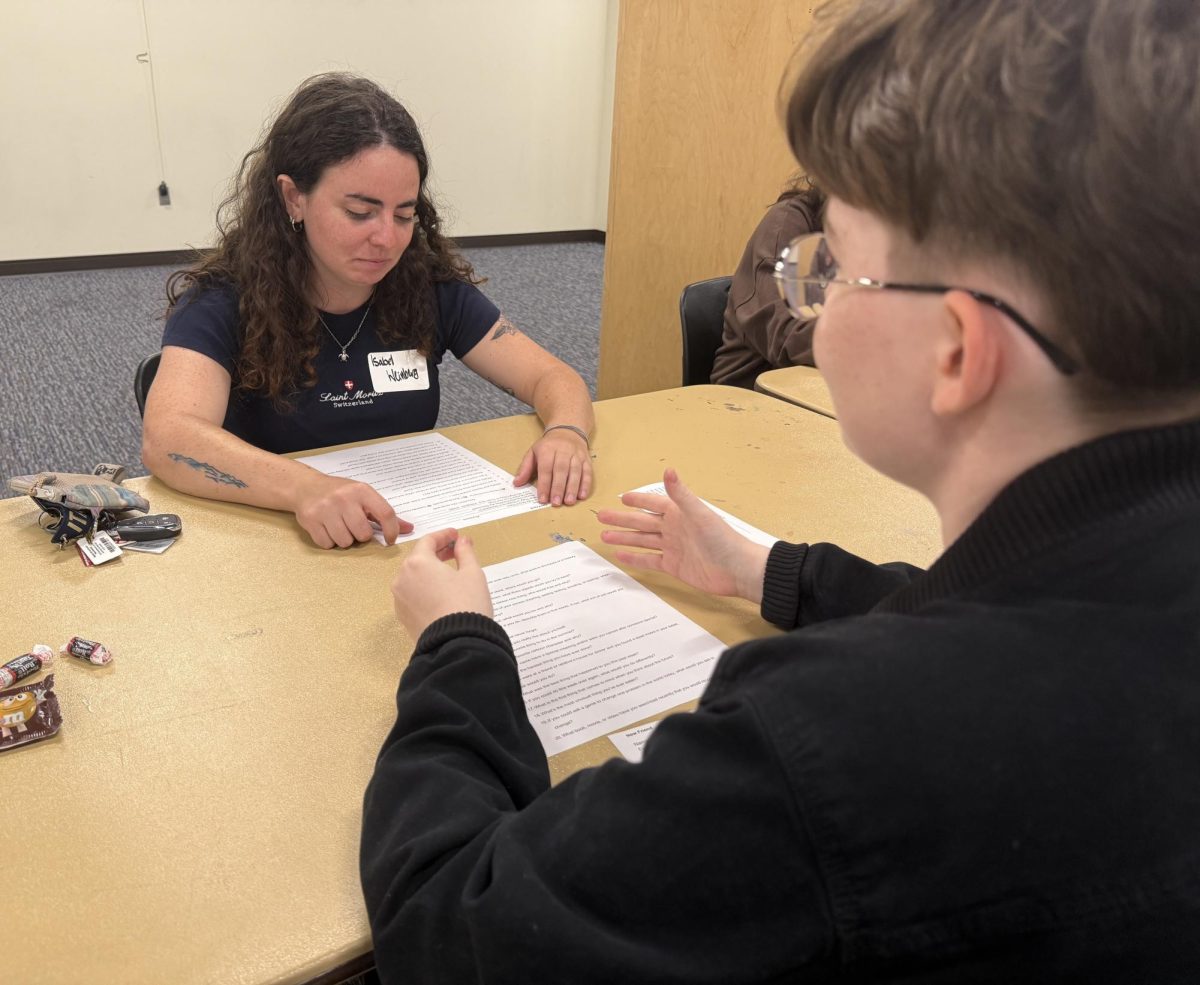Many entries in UNC Asheville’s crime log aren’t for crimes at all, but rather suspicious person and suspicious vehicle calls.
“There’s no such thing as a stupid question, and there’s no such thing as a silly report,” said Detective Sgt. Whitney Montgomery of UNCA campus police.
Across the 3,457 entries listed on UNCA’s campus crime log between Feb. 1, 2018, and March 4, the word “suspicious” appears 1,039 times. While some mentions of suspicious persons or vehicles accompany other charges on the log, the vast majority do not.
Montgomery, who has been with campus police for more than eight years, said what is regarded as suspicious is a relative question, but not one that diminishes the importance of these calls to campus safety.
“What may be suspicious to you is not suspicious to me, but that doesn’t mean that it’s not serious to us as an agency,” the detective said. “We’ve got to respect when our students or our community members find someone’s presence odd, and it might end up being criminal.”
Volker Frank, a sociology professor who has been with UNCA since the mid-’90s, said the concept of a suspicious person is a byproduct of our complex societal relationship with strangers.
“The very label, suspicious person, is a compromise between an innocent person and a criminal. It’s a suspicious person that could very well become a criminal, or may just be a normal person,” he said. “So that, in itself, reflects the ambiguity that we have as a society towards the stranger.”
According to Frank, individuals do, at certain times, give strangers a massive amount of their trust. This is the case for therapists and doctors. But, he said from an early age we teach our children not to talk to strangers and to view them as others, contributing to contemporary society’s natural suspicion of the unknown.
“The stranger is not part of a community. People of the community know if there’s a nonmember,” said the professor.
Frank said the social norms that dictate what is acceptable behavior for members of a community may have become more unclear in recent times, contributing to an imperfect understanding and treatment of outsiders.
“It’s quite possible that the norms become more arbitrary, which for a society is a problem, because a society wants to have norms that are applicable, evident and apply to everybody in the same way,” Frank said. “It’s never been that way, anyway, but modern society expects that.”
Though unable to provide statistics on the matter, Montgomery said suspicious person or vehicle calls do sometimes result in further charges or police action. On the other hand, that is not always the case. In certain contexts, the force’s telecommunications team is able to contact relevant parties to ensure if police action is actually necessary.
“There are numerous calls in which someone may find something suspicious that doesn’t warrant law enforcement interaction,” Montgomery said. “But that doesn’t mean that it’s always going to warrant us to approach that person that you found suspicious, because we may have gotten on the back end information from a professional assessment that we can clarify that it’s not misconduct.”
Considering the frequency of these types of calls, some may be concerned about the societal effects of police confrontations with those deemed suspicious, especially if they are innocent.
Logan Byrd, a UNC Asheville senior studying psychology, said interactions between law enforcement and noncriminals can still have adverse consequences. For some, including members of a minority group and those who have experienced poor police encounters in the past, there can still be a clear message.
“Especially in circumstances where it is a matter of racial bias, then it would, even if the cases are nonviolent, still communicate something. It’s like a ‘you don’t belong here’ sort of thing,” Byrd said.
While Byrd agreed that responding to calls about suspicious behavior contributes to campus safety and reinforces feelings of security for those who may be concerned, he also said society can facilitate abrupt reactions to the behavior of strangers rather than thoughtful consideration.
“I think we are conditioned on some level to be uncomfortable with things that we are not familiar with, and maybe not in a reflective sense,” the UNC Asheville student said.
In spite of potential concerns surrounding what counts as suspicious behavior, Montgomery said campus police is committed to supporting inclusivity in addition to campus safety.
“This is a diverse community and we are proud of that. We welcome everybody. I don’t think that you can work within this community and not prioritize preventing profiling from a law enforcement application,” she said.
According to Montgomery, the agency has taken steps to promote more constructive interactions between officers and the public.
“First and foremost, it is the agency’s major goal that all of our officers are trained in a crisis intervention training course,” she said.
Montgomery said they aim to have every new officer complete the 40-hour course within their first year. Training continues with a course on de-escalation and interacting with those going through a mental health crisis. Cumulatively, she said officers attend hundreds of hours of training per year and go above and beyond what is legally required.
Frank said it is immensely challenging to statistically analyze the effects of law enforcement encounters with people deemed suspicious on a whole. Depending on the circumstances, the agency of individual officers and departments allows certain interactions to vary widely from one another.
“It’s very difficult to say the police always or the police never, because there’s a tremendous amount of diversity between every single police department,” he said.
Regardless of the immense number of variables, Frank said the prominence and mere existence of the suspicious person category serves as an inquiry into how our communities respond to unfamiliarity.
“A suspicious person, in a way, represents several things: the hysterical, the uncertain and the contradictory nature of modern society,” Frank said.


![Brooke Pedersen [second from the right] and Luis Reyes [right] hold banners during the Wrap The Woods event.](https://thebluebanner.net/wp-content/uploads/2025/09/ELIZABETH_PRITCHITT_IMG_3470-1200x804.jpg)






















